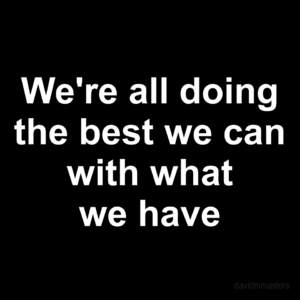What can you do when someone calls you a liar? That’s a tough question and one of the most difficult situations between two people. You have told the truth, whoever you’ve told it to doesn’t believe you, and to make matter worse, you’ve been called a liar.
If you are telling the truth, what else can you do?
You are never obligated to defend yourself against someone who accuses you of being dishonest when you have stated the truth. Trying to defend yourself, or prove what you are saying can make matters even worse.
If someone believes you are lying, nothing you do can help sway their mind, or what they think about your ability to be honest in most cases and standing up for yourself can make matters worse as the person who thinks you are lying will think your insistence “proves” (in their mind that you are lying.
When you tell the truth, it reflects upon your integrity. We all have different levels of integrity, but regardless when you’ve told the truth, and you know in good conscious that you have told the truth, you need to just speak your truth and let it be.
It is not up to you to convince anyone that they are wrong about you.
You never know what’s going on inside someone else’s head. They might not trust you for any of a million reasons and their lack of trust in your ability, to tell the truth, tells you more about them than it does about you.
They can falsely accuse you of a great many things and call you names which can cut you like a knife in an attempt to get you to crack open. While this does not feel good, and can make you feel awful, you may feel like changing your story just to stop their crazy and abusive behavior, then where are you?
You might think it’s no big deal, so you change your story to accommodate their insistence that you are not trustworthy. You just want to be accepted. While this may stop the onslaught of abusive interrogation, this person will never trust you again.
It is quite a conundrum, but you are not responsible for what someone else thinks about you.
Unfortunately, this can escalate to unreasonable proportions. Our society has a corrupt legal system, that while it is imperfect, it’s the best we have at this time in the world, and for the most part (even if the most part is only represented by 51 percent of the time) it is mostly effective, even if sometimes it is absolutely wrong and unjust.
Some people, empowered by this system and know how to manipulate it, can cause a great deal of pain and suffering to those whoever they desire. These people can be motivated by a sense of self-righteousness, revenge, haunted by their own inner demons, or to exert superiority over someone else.
The best you can do is to speak your truth and let it be. Love the person who accuses you and walk away if you can, knowing you did the best you could. Do not engage in an argument, because as you may already know, some people will persist in beating you into submission, and for what?
Because they are so embroiled in their position that they might do anything to prove you wrong?
This is an argument or battle you may never be able to win.
Unfortunately. people lie all the time. And once you’ve been lied to, it’s hard to trust again, especially if you do not have the power of love to fall back on, and the realization that everyone is entitled to live their lives in the best way they can with the tools they have available to them at any moment.
Wars are fought, and many lives are wasted in fighting over differences in belief. It is your choice to fight, or not.
Interestingly enough, if you can find a way to stay in the vibration of love, and refuse to engage in a defensive position, you will be able to see other options as they are revealed to you.
Even though it may look like you are facing impossible odds, you will be afforded other options, and you will find yourself living a more advanced life of love and honor.
Stay true to you and seek not to force others to see from your point of view, only love.
The world we live in is not perfect, but it’s the best we have. It’s up to us to make the best of it, and find ways to pave a better road for generations that follow.
We can change the world, and it will evolve into a better world, if we only love, for love is the most powerful force for good.







